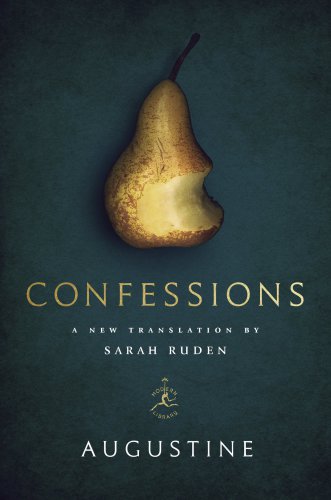
Confessions
کتاب های مرتبط
- اطلاعات
- نقد و بررسی
- دیدگاه کاربران
نقد و بررسی

Starred review from April 10, 2017
Written in Latin during the late fourth century C.E., this memoir from the North African saint—one of the earliest examples of autobiographical narrative—receives a wholly new translation by poet, essayist, and translator Ruden (Other Places). Approaching her subject with deep religious and historical knowledge, she chooses to translate Augustine as a performative, engaging storyteller rather than a systematic theologian. Beginning with his babyhood and struggles with early schooling, Augustine traces his own intellectual and religious development through adolescence into middle adulthood. Born to a family of both Christian and pagan faith, Augustine migrated to Italy as a young adult to pursue a career in rhetoric. Before committing himself to a life of celibate religiosity, Augustine spent roughly a decade in a long-term relationship with a woman, and the two had a son. Augustine also explored and ultimately rejected Manichaeism. He would become, during and after his life, a pivotal figure in the history of Christianity. While acknowledging that earlier translations may have been “learned and serviceable,” Ruden argues that much is lost when Augustine’s linguistic playfulness is downplayed. An extensive introduction delves into the translator’s decisions, particularly those that depart most sharply from those of her predecessors. The resulting work is delightfully readable while still densely theological. In this lively translation filled with vivid, personal prose, Ruden introduces readers to a saint whom many will realize they only thought they knew.

June 15, 2017
Augustine's classic work, originally published between 397 and 400 CE, has appealed to readers far beyond the Christian world and been translated a number of times. Ruden (visiting scholar, Brown Univ.; Paul Among the People) seeks to make her translation different by not looking at the text from the perspective of later theological issues and sticking as closely as possible to the sense of the original Latin. This approach does not seem to make much difference in the first nine books--the autobiographical part--when compared to other translations. However, Ruden's format works very well in the final three books, which are highly philosophical, with meditations on memory and time. Ruden seeks to bring to the contemporary English reader the same experience the original Latin reader would have had. To do this, she often uses two or more words to translate one of Augustine's, since his original language has nuances not easily conveyed by one word. Footnotes give references to the biblical allusions in the text and explain contemporary controversies. VERDICT Ruden's translation makes Augustine's ancient text accessible to a new generation of readers with a real taste of the original Latin.--Augustine J. Curley, Newark Abbey, NJ
Copyright 2017 Library Journal, LLC Used with permission.

























دیدگاه کاربران